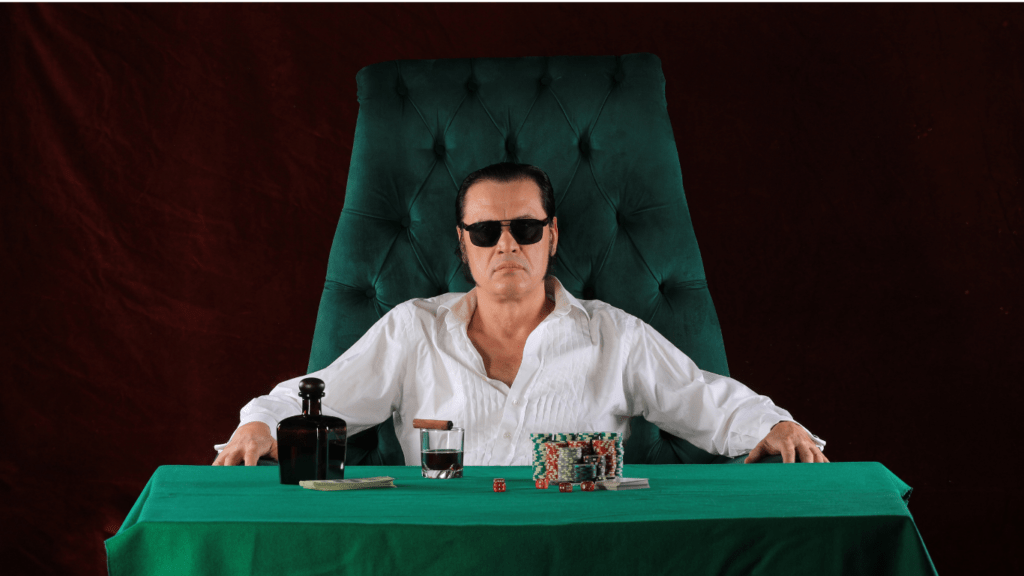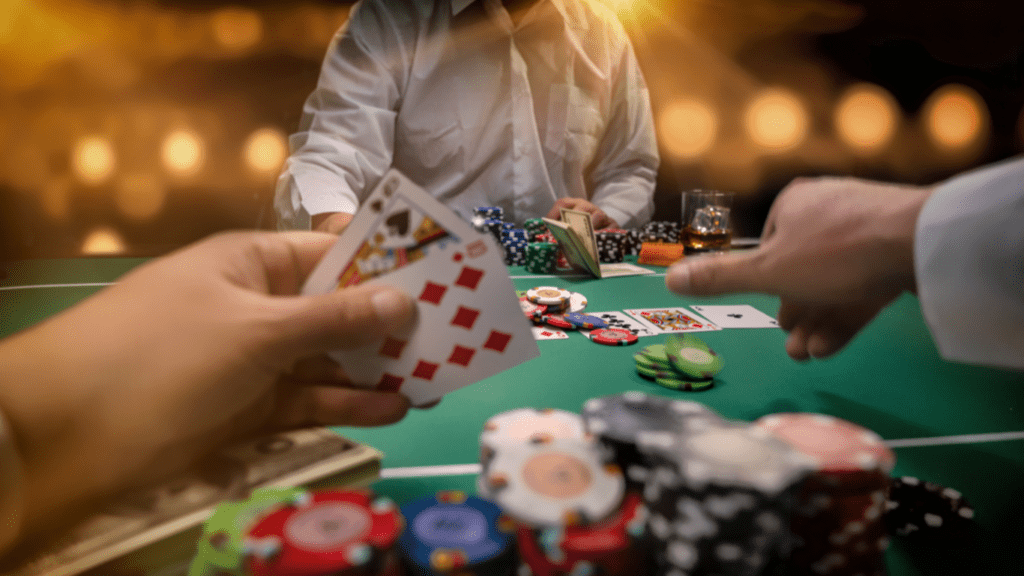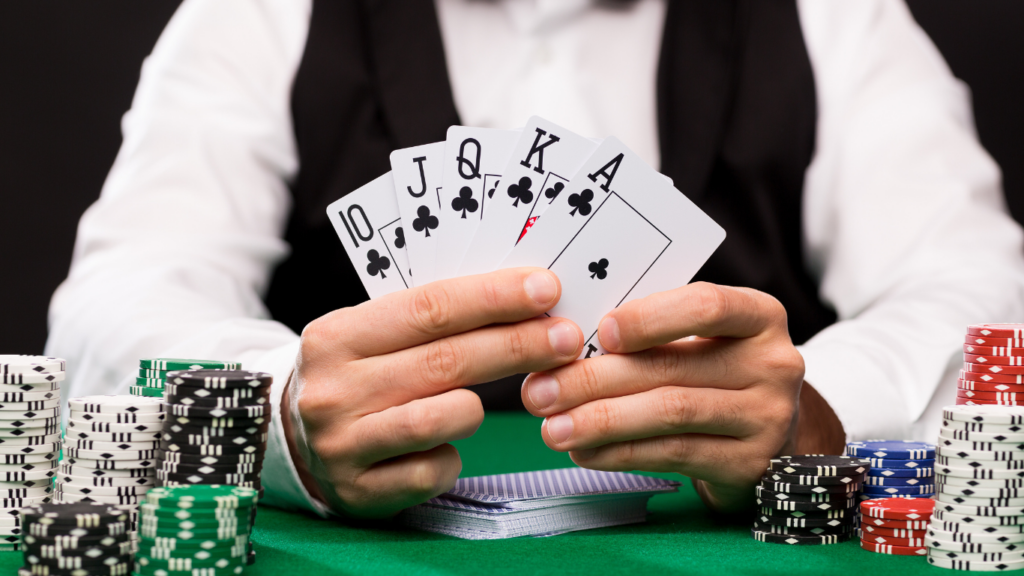Poker isn’t just a game of cards—it’s a battlefield of strategy, psychology, and resilience. I’ve always been fascinated by how the legends of the game navigate high-stakes moments with such precision and poise. What sets them apart? How do they handle the pressure, outwit their opponents, and consistently play to win?
Overview Of Poker Legends Speak: Strategy, Pressure, And Playing To Win
Poker legends consistently display a unique combination of:
- skill
- mental agility
- strategic thinking
They approach each hand with a calculated mindset, blending probability analysis with a deep understanding of human behavior. Their gameplay demonstrates an ability to adapt instantly to shifting dynamics, a skill that sets them apart.
Pressure is a constant in professional poker, especially during high-stakes games or tournaments. These legends thrive in such environments by leveraging mental discipline and emotional control. Managing stress and staying focused under intense scrutiny allows them to outlast their competition.
Winning in poker requires more than just technical expertise. These extraordinary players prioritize long-term strategy over short-term gains. Their ability to decipher subtle cues from opponents, manage resources like chips, and execute strategic bluffs showcases their mastery of the game. Through refined observation and practice, they maintain a competitive edge.
The insights of poker legends offer invaluable lessons for anyone looking to excel. Their ability to combine strategy, manage pressure, and focus on optimal decisions exemplifies the mindset needed to succeed in this challenging game.
Insights Into Strategy
Successful poker players rely on refined strategies, striking a balance between calculated risks and disciplined decision-making. Their approach combines mathematical precision with psychological awareness.
Key Lessons From Poker Legends
- I’ve observed that poker legends emphasize mastering the fundamentals, from calculating pot odds to identifying betting patterns. For instance, Doyle Brunson, known as the “Godfather of Poker,” advocates consistent aggression in favorable situations.
- Consistency helps control the momentum and pressure opponents into mistakes.
- Another key lesson involves reading opponents.
- Players like Daniel Negreanu excel at analyzing body language and betting tendencies, enabling them to predict moves with high accuracy.
- This skill elevates decision-making by converting subtle behavioral cues into actionable insights.
- Patience is critical. Phil Ivey often highlights the value of waiting for the optimal moment to strike, even if it means folding multiple hands.
- This mindset prioritizes long-term strategy over impulsive play.
Adapting Strategy Under Pressure
Under pressure, effective adaptation defines success. Legends adjust to table dynamics by observing opponents’ strategies and recalibrating their approach accordingly. For example, many poker pros shift between loose and tight play depending on stack sizes and pot conditions.
Confidence remains essential during high-pressure scenarios. Players like Annie Duke stress using prior knowledge to anticipate outcomes rather than succumbing to emotional reactions. Emotional control ensures consistent focus, even when the stakes are high.
Finally, leveraging unpredictability creates a competitive edge. For example, bluffing, a hallmark of advanced poker, becomes most effective when used sparingly and unpredictably. Legends use strategic bluffs to confuse opponents and shift perceived patterns.
Managing Pressure At The Poker Table

Thriving under pressure is a hallmark of poker legends. Composure and mental resilience allow them to make calculated decisions in high-stakes environments.
Psychological Tools And Techniques
Top players rely on specific psychological tools to manage pressure effectively. Visualization helps in anticipating different scenarios and preparing responses before they occur. Managing self-talk is another critical aspect; replacing negative thoughts with objective assessments sustains confidence. Mindfulness techniques, such as focused breathing or meditation, reduce anxiety and improve clarity. By incorporating these methods, players maintain focus during intense games without letting external factors distract them.
Staying Composed In High-Stakes Situations
In high-stakes games, composure directly impacts decision-making quality. Poker legends maintain a consistent emotional demeanor, regardless of a win or loss. This stability prevents impulsive actions or over-corrections after bad hands. They break games into smaller, manageable segments to avoid feeling overwhelmed. Legends often remind themselves that poker is a long-term game, helping anchor their mindset in strategy rather than immediate results. Decisiveness under pressure stems from this balance of emotional control and forward-thinking.
Playing To Win: The Mindset Of A Champion
Success in poker stems from a winning mindset, blending risk management, strategic foresight, and psychological resilience. Legends of the game exemplify how to channel focus, discipline, and adaptability to consistently outplay opponents.
Balancing Risk And Reward
Balancing risk and reward defines how champions approach high-stakes decisions. Legends assess probabilities, stack sizes, and opponent tendencies to decide when risks align with potential gains. For instance, Phil Hellmuth emphasizes minimizing unnecessary risks early while preserving chips for pivotal moments. Strategic aggression, like bluffing against predictable players, creates opportunities to shift momentum while controlling potential losses.
Taking calculated risks is essential when the reward justifies the gamble. Players such as Vanessa Selbst demonstrate this by exploiting opponents’ hesitations, leveraging small advantages to gradually build dominance. Maintaining discipline during risky moves ensures that expected value remains the priority.
Building Long-Term Success
Building a successful poker career requires sustained focus on consistent and informed decision-making. Legends like Erik Seidel prioritize adaptability, adjusting tactics based on evolving situations rather than sticking rigidly to one style. By continuously analyzing trends and learning from past games, they refine strategies to outlast the competition.
Developing patience and emotional endurance is critical for long-term success. Champions such as Doyle Brunson advocate viewing the game as an ongoing process, where success is measured over months or years, not isolated sessions. This perspective prevents emotional tilt, enabling rational choices even during losing streaks.
Commitment to growth defines the champions’ mindset. They invest time studying new techniques, watching opponents, and strengthening weaknesses, ensuring they remain competitive in an evolving field. Balancing cumulative growth with situational awareness forms the foundation for enduring success in poker.
















































































































































































































































































































































































































































































































































































































































































































































































































































































































































































































































































































































































































































































































































































































































































































































































































































































































































































































































































































































































































































































